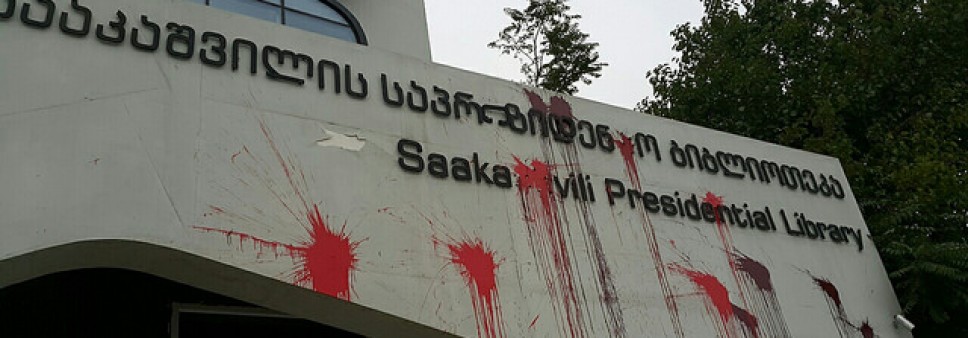Joint statement of non-governmental organizations on investigation of facts of torture in the penitentiary system
One year ago, on 18 September 2012, videos emerged in the media showing torture and the inhumane and degrading treatment of prisoners in the penitentiary system.
These videos clearly demonstrated the severity and scale of human rights violations in the penitentiary facilities. The footage released on 18 September and afterwards confirmed the existence of maltreatment, which the Ombudsman of Georgia and non-governmental organizations had been actively pointing out. However, the state internal control mechanisms and the bodies with investigative and prosecutorial responsibilities were too lenient, and there was an absence of political will and action. This situation consequently encouraged impunity and the maltreatment of prisoners in the penitentiaries.
After the release of the prison footage, society demanded (in Georgian) an independent, impartial, effective and timely investigation, not only into the released footage, but also into any other instances of maltreatment in the penitentiary system or pre-trial detention facilities.
The high public interest in an effective and independent investigation of these cases was caused by the need to restore justice, rethink the past and rehabilitate the victims.
Unfortunately, one year after the release of the footage, society does not have a complete picture of the systematic violations of human rights that took place in the penitentiary system. The results of the investigation into these facts are not transparent. Only general information about the investigation is known to the public, including information about the convictions of several individuals secured by trials on merit, plea agreements with 8 defendants and the dropping of charges against Vladimer Bedukadze (in Georgian) on the basis of a plea agreement on “special cooperation”.
We think that plea bargaining and the dropping of charges against individuals convicted of torture and inhuman treatment contradicts international law, including the UN Convention against Torture and Other Cruel, Inhumane or Degrading Treatment or Punishment , which stipulates that state parties have the obligation to make these offences punishable by appropriate penalties which take into account their grave nature.
Therefore, we believe that dropping charges against individuals convicted of torture and inhuman treatment, despite the level of cooperation, contravenes Georgia’s internationally agreed obligations.
In addition, there remains a high level of public interest in regards to the practice of maltreatment and its scale, and information about the individuals who were supervising and committing the crimes and the responsibility of politicians, as well as other aspects of the case.
The public is also interested in having information on terms of plea agreements made with the convicted individuals and justifiability/necessity to make such agreements. Despite this, none of these agreements are publicly accessible. In general, there is little information about the course of the investigation, the established facts and existing results.
One year after the release of the footage, a timely and effective investigation must clarify: what was the scale and degree of the crimes in the detention facilities? How many people were subjects of torture and inhumane treatment? Who participated in the preparation and perpetration of said crimes and to what degree? Conducting a timely and effective investigation, as well as publishing its results, is important for both justice and crime prevention, and for society to be able to rethink the past.
Subsequently, we call on the responsible agencies to present a detailed account of the one year investigation and its results to the public. It should also include information on the programs and their results aiming to rehabilitate and re-socialize the victims. Moreover, we once again call on the Prosecutor’s Office to publish the documents of plea agreements made with the defendants (by protecting privacy interests).
International Society for Fair Elections and Democracy (ISFED)
Human Rights Education and Monitoring Center (EMC)
Article 42 of the Constitution
Georgian Young Lawyers’ Association
Transparency International Georgia
Human Rights Center
Open Society Georgia Foundation (OSGF)
Georgian Democracy Initiative (GDI)

